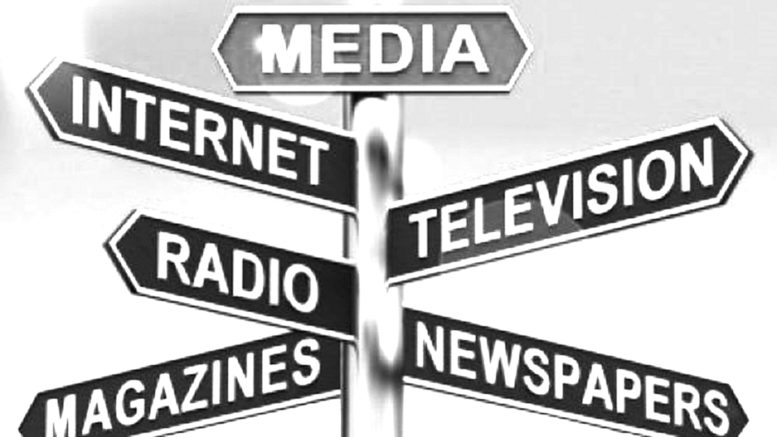One of the things I’ve noticed over the last ten years and especially more recently is that the information that government puts out has given me the impression that it is much more politicised than it once was. Those of us who grew up with what were called ‘Public Information Films’ that covered things like road safety, home safety, firework safety and stranger danger, look back on these films as being relatively accurate and untouched by ideology. After all, as these films accurately said, the roads are dangerous, it’s stupid to put weedkiller in empty lemonade bottles, fireworks are harmful if mishandled and sadly there are some individuals out there who have a desire to harm children.
These films, that made a great impression on people of my generation, were produced by government but not by Government. They were produced by an arms length entity called the Central Office of Information, which was a holdover from World War II when accurate information about nutrition, avoiding waste and other similar matters needed to be conveyed to the population in the most efficient way possible. Originally these public information films were spliced into the adverts that were shown prior to the main feature, but later, as television took over from cinema,were shown on television either on the BBC and on the sole Commercial channel that existed at the time.
The Central Office of Information was abolished in 2011 by David Cameron’s Coalition government and in my view a valuable and necessary firebreak between government and the production of public information was removed. Cameron’s decision created a situation where the production of public messages was now much closer to politics and indeed party politics. This meant that there was the temptation for the government to push political ideology rather than just pure public messaging. Having a separation between government and the producers of public messaging makes it less likely that a ruling party would be tempted to insert overt political messages into a form of communication that should primarily be based on the idea that the public needs to be informed about issue X or issue Y and that’s that.
I’m not the only one who is concerned that doing away with the old Central Office of Information was a bad idea. Scott Anthony writing over at The Critic magazine has given an excellent potted history of the COI and contrasted its output with the UK government’s output especially during the covid pandemic.
Mr Anthony said:
The COI was the media bureaucracy of the post-war consensus. Perhaps partly for this reason, the COI was abolished by David Cameron in 2011.
But one of the other reasons that politicians never liked the COI was because there were clear limits to how far its output could be politicised. By design it was an arms-length government agency which resisted the micromanagement of centralised party political control. Because the COI was set up with the Cold War objective to limit government intervention as much as enable it, it had no cultural heavyweight friends and represented no powerful political constituency. If anything, the COI was an exemplar of the occasionally self-defeating parsimony of the national state agencies created in the immediate post war period.
Yes indeed. The COI was set up so that there were clear limits in how its output could be politicised and a lot of politicians are not happy with limits to their powers. That’s not a dig at any one particular politician party,that’s a dig at all of them. The difference between the output of the COI, at least as I saw and remembered them and some of SAGE’s covid messaging today is that back then the COI treated the public as thinking individuals where as SAGE and the politicians who are aligned with them have no moral qualms about frightening the public whether that be necessarily justified or not.
Mr Anthony pointed out that removing the firebreak between government and the provision of public information has had some worryingly negative effects. He added:
Rather than occupy a third space between the government of the day and the commercial media, “public information” was becoming a tool for highly sectarian interests to shape the news agenda and limit the discursive space for political opposition. The “public” part of public information was gradually being furloughed and replaced by the altogether less attractive concept of government information, accompanied by the attendant tendency for state failure to be blamed on dissenting opinion.
I agree with this comment. We’ve seen a lot of this especially recently.
Maybe it is time to bring back the Central Office of Information and also bring back the idea of public rather than government information? Mr Anthony’s piece is one that asks some very pertinent questions about how information gets from government and public bodies to the people and whether much good has been lost by abolishing the COI. You can read Mr Anthony’s article via the link below.






It may be time to bring back the COI but the chances of our politicians relinquishing any power, any authority over anything, or any influence, are infinitesimally small.
The politicians may not want to give up the power willingly but they might be forced to move back to an arms length system of public information provision if the public start to reject messages that they see as politicised. One thing that I distinctly remember about the old Public Information Films is that although messages may have emanated from the government they were not overtly political. That’s a big difference from the sort of government to people communications that we get today.
That’s a very interesting read. Thanks for sharing.
More generally, the BBC used to be known as a really reliable source of information. Nowadays it is a joke, only the most mindless sheeple believe a word that is broadcast on the BBC. Particularly hilarious is the way that anything that happens, anything whatsoever, has to have been caused by climate change.
The BBC squandered their good reputation and I don’t think that they will be able to get it back. I’ve got friends who are avid BBC fans and I find it astonishing just how little they know about world events. The BBC used to be the pinnacle of foreign reporting but now they are worse than useless.